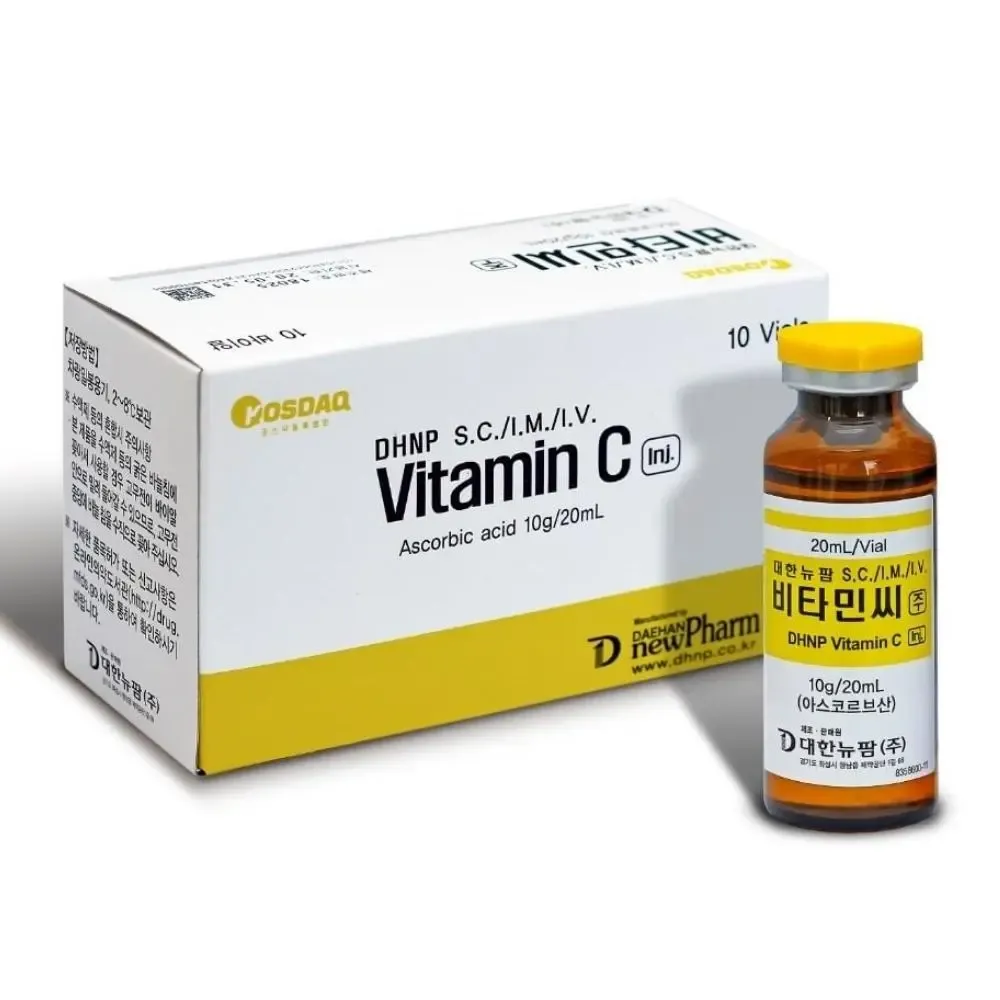The Power of Vitamin C for Skin Whitening
Vitamin C, a potent antioxidant, has emerged as a popular ingredient in skincare, celebrated for its ability to brighten and improve skin tone. This water-soluble vitamin plays a crucial role in various bodily functions, including immune support and collagen synthesis, but its benefits extend significantly to skin health. Skin whitening, or rather, skin brightening, is one of the most sought-after effects of Vitamin C. The key to understanding its efficacy lies in its ability to combat free radicals, which are unstable molecules that can damage skin cells and lead to premature aging, dark spots, and uneven skin tone. By neutralizing these harmful agents, Vitamin C helps maintain a youthful, radiant complexion. Furthermore, Vitamin C inhibits the production of melanin, the pigment responsible for skin color, thereby reducing the appearance of hyperpigmentation and promoting a more even skin tone. This makes Vitamin C a powerful ally in achieving a brighter, more luminous complexion, and it’s often available in various forms, including oral supplements (Vitamin C tablets) and topical applications such as serums and creams.
Enhanced Skin Brightness with Vitamin C
One of the most noticeable benefits of incorporating Vitamin C into your skincare routine is the enhancement of skin brightness. Over time, regular use of Vitamin C, whether through tablets or topical applications, can significantly reduce dullness and reveal a more radiant complexion. This effect is a result of several factors. Firstly, Vitamin C’s antioxidant properties help to protect the skin from environmental stressors like pollution and UV radiation, which can lead to a lackluster appearance. Secondly, Vitamin C promotes the shedding of dead skin cells, revealing the fresh, glowing skin underneath. Thirdly, Vitamin C contributes to the reduction of melanin production. This action is particularly beneficial for individuals looking to address uneven skin tone, sunspots, or other forms of hyperpigmentation. As melanin production decreases, the skin naturally appears brighter and more even. In essence, Vitamin C acts as a multi-faceted agent, working to revitalize the skin from within and create a healthy, luminous glow. Integrating Vitamin C tablets into your daily routine can therefore provide a convenient and effective way to achieve and maintain brighter, more vibrant skin.
How Vitamin C Reduces Hyperpigmentation

Hyperpigmentation, characterized by dark spots or patches on the skin, can be caused by various factors, including sun exposure, hormonal changes, and inflammation. Vitamin C is a proven solution for treating this. The mechanism by which Vitamin C combats hyperpigmentation involves inhibiting tyrosinase, an enzyme required for melanin production. By blocking tyrosinase, Vitamin C reduces the formation of new melanin, thereby preventing the darkening of existing spots and the formation of new ones. Additionally, Vitamin C has antioxidant properties that protect the skin from further damage, reducing the likelihood of hyperpigmentation. Over time, consistent use of Vitamin C tablets or topical products can lead to a noticeable reduction in the appearance of dark spots, resulting in a more even skin tone. The effectiveness of Vitamin C in reducing hyperpigmentation makes it a valuable ingredient for those seeking to address discoloration and achieve a clearer, more radiant complexion. It is crucial, however, to be patient and consistent with use, as visible results often develop over several weeks or months of regular application.
The Science Behind Vitamin C for Skin
The benefits of Vitamin C for skin are deeply rooted in its chemical structure and how it interacts with skin cells. Vitamin C, also known as ascorbic acid, is a powerful antioxidant that can neutralize free radicals, protecting the skin from oxidative stress. This stress occurs when there is an imbalance between free radicals and antioxidants in the body, leading to cell damage and premature aging. The antioxidant activity of Vitamin C contributes to its anti-aging properties, as it helps to protect against damage from environmental factors. Moreover, Vitamin C is essential for collagen synthesis. Collagen is a structural protein that provides firmness and elasticity to the skin. Vitamin C is a cofactor for the enzymes involved in collagen production. The body cannot produce enough collagen without this important vitamin. Regular intake of Vitamin C, whether through tablets or other sources, helps to keep the skin firm and prevents wrinkles. Its role in collagen production makes it a critical component for maintaining youthful-looking skin. This combined with its melanin-inhibiting properties, enhances the skin’s natural radiance.
Vitamin C’s Role in Collagen Production
Collagen, a protein responsible for skin elasticity and firmness, plays a vital role in maintaining youthful skin. Vitamin C is a critical cofactor in the production of collagen. Without Vitamin C, the body cannot effectively synthesize collagen. The process involves several steps, and Vitamin C is an essential part of this process. This is particularly relevant as we age, because collagen production naturally declines, leading to wrinkles and sagging skin. By ensuring adequate Vitamin C intake, we can support the body’s natural ability to produce collagen, thus maintaining skin’s firmness. Vitamin C helps to stabilize collagen molecules, further contributing to the strength and structural integrity of the skin. This contributes to a more youthful appearance. Incorporating Vitamin C supplements into your routine, such as Vitamin C tablets, can help to boost the body’s collagen production, and maintain healthy, resilient skin and improve skin elasticity.
Boosting Skin Health with Vitamin C Tablets

Vitamin C tablets offer a convenient way to boost skin health from the inside out. They are particularly useful for individuals who may not get enough Vitamin C from their diet. Factors like poor eating habits, food processing methods, and certain medical conditions can all contribute to Vitamin C deficiency. By taking Vitamin C tablets, individuals can ensure that their skin receives the necessary nutrients to support collagen production, protect against free radicals, and promote an even skin tone. The tablets are easily incorporated into a daily routine, making it simple to maintain consistent intake. When selecting Vitamin C tablets, consider factors like dosage and formulation. The bioavailability of the vitamin can vary, so consider different forms, such as ascorbic acid or buffered forms, depending on your individual needs. Always follow the recommended dosage instructions and, if you have any underlying health conditions, consult with a healthcare professional before starting any new supplement regimen. Regular use, as part of a holistic skincare approach, can contribute to radiant, healthy skin.
The Best Way to Take Vitamin C Tablets
Maximizing the benefits of Vitamin C tablets involves understanding the best ways to incorporate them into your daily routine. Firstly, timing is crucial. Many people find it best to take Vitamin C tablets with a meal, particularly one rich in iron, as Vitamin C can help enhance iron absorption. This is especially beneficial if you are also addressing iron deficiency. Secondly, dosage should be tailored to your individual needs and any advice from a healthcare professional. While the recommended daily allowance (RDA) of Vitamin C is generally sufficient for basic health, some people, especially those with specific skin concerns, may benefit from higher doses. However, it’s important not to exceed the upper limit to avoid potential side effects, such as digestive issues. Thirdly, consistency is key. For the best results in skin health, Vitamin C tablets should be taken consistently, as the benefits build up over time. Creating a regular schedule can help ensure that you don’t miss doses. Finally, consider other supplements to enhance Vitamin C’s effect. Vitamin E, for example, works well with Vitamin C, and helps to boost the antioxidant effect. It’s best to consult a healthcare provider for more individual solutions. Always prioritize a balanced diet and a healthy lifestyle, as these play a crucial role in overall skin health.
Choosing the Right Vitamin C Supplement
When choosing Vitamin C supplements, several factors can help to make the best decision. Consider the form of Vitamin C: Ascorbic acid is the most common, but it can be acidic. Buffered forms, such as calcium ascorbate, are gentler on the stomach. Liposomal Vitamin C offers better absorption, as it is encapsulated in liposomes. Examine the dosage. Supplements typically range from 500mg to 1000mg per tablet. Consider the other ingredients. Some tablets may contain added ingredients, such as bioflavonoids, which can enhance the absorption and effectiveness of Vitamin C. Check the third-party testing. To ensure the quality, purity, and potency of the supplement, purchase products that have been independently tested by third-party organizations. This verifies the supplement contains what the label says. Research the brand. Look for reputable brands with positive reviews. Consider your own health needs. If you have sensitive digestion, you may want to choose a buffered or liposomal form of Vitamin C. Always consult with your healthcare provider. This is especially important if you take other medications or have any underlying health conditions. Finding a suitable supplement involves careful consideration of your individual needs, the supplement’s ingredients, and the supplement’s testing by an independent third party.
Potential Side Effects and Precautions

While Vitamin C is generally safe, it’s important to be aware of the potential side effects and precautions when taking it, especially in tablet form. The most common side effects are digestive issues, such as stomach cramps, nausea, diarrhea, and bloating. These side effects are more likely to occur when taking high doses. Start with a lower dose. Increase gradually, as tolerated. Always stay within the recommended dosage to minimize this risk. Individuals with a history of kidney stones should consult their doctor before taking high doses of Vitamin C, as it can increase oxalate production, which is a component of some types of kidney stones. If you are taking any medications, consult with your doctor, since high doses of Vitamin C can interact with certain drugs. Consider any existing health conditions. It’s important to disclose any health conditions you have to a healthcare provider. Also, certain medical conditions, such as hemochromatosis (iron overload), may be impacted by high doses of Vitamin C, as it can increase iron absorption. Always listen to your body. If you experience any adverse effects, stop taking the supplement and consult with a healthcare professional. Safe and effective Vitamin C use involves informed and careful consideration of both the benefits and potential risks.
